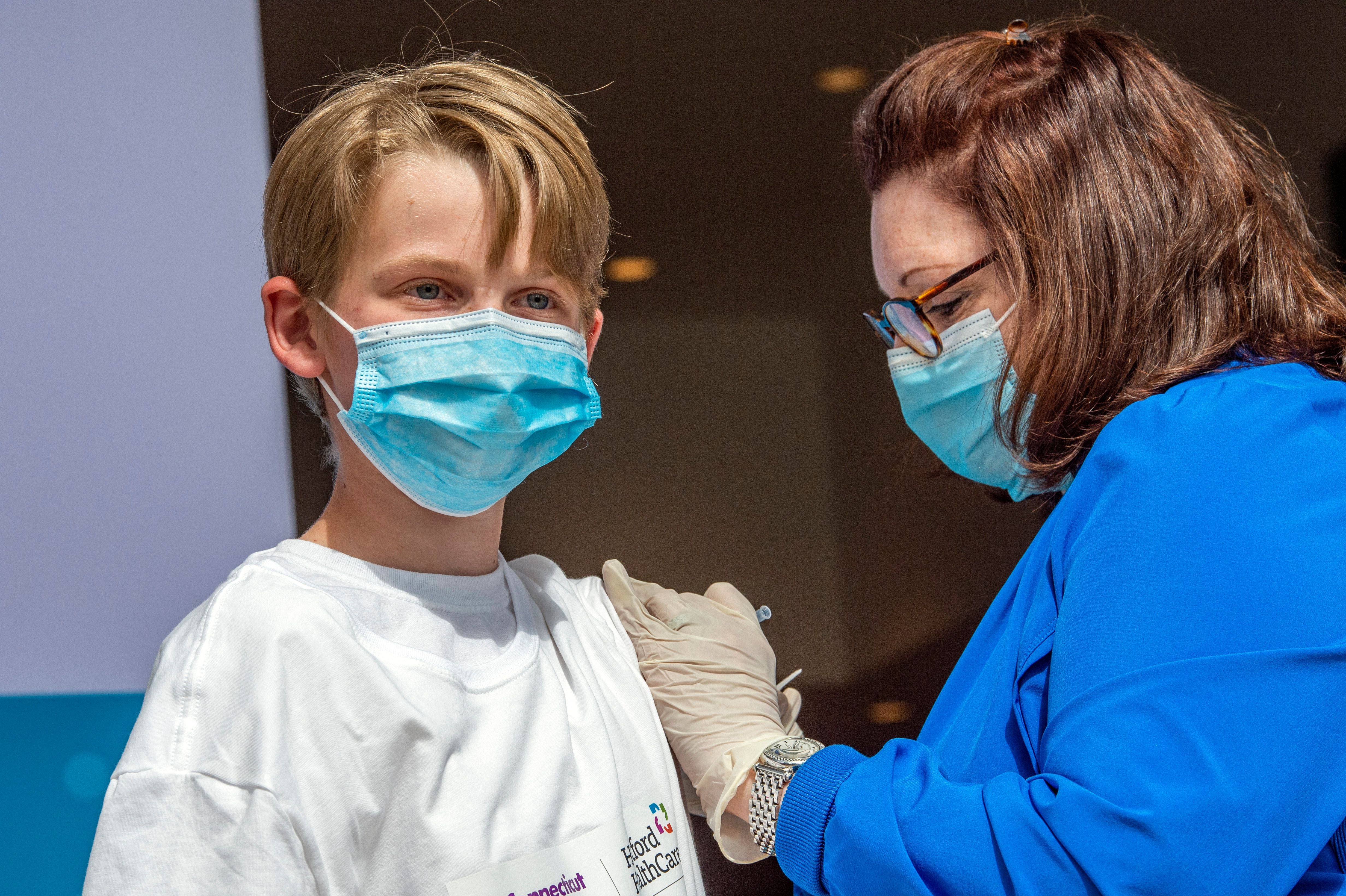Extending the Covid vaccine to children would be a welcome development
Editorial: There is growing evidence that the benefits of vaccinating young children outweigh the risks, and that a low dose provides a strong immune response while reducing the chances of side effects

The UK is ahead of France, Germany, Italy and Spain in rolling out its booster vaccinations for coronavirus, repeating the pattern when people began receiving their first dose a year ago. But the UK has been behind the international curve when it comes to vaccinating young children.
An estimated 2.6 million in the five- to 11-year-old age group have had the jab in the United States, and the EU has approved the use of the Pfizer vaccine for this cohort. Despite a second dose for 12- to 15-year-olds having been approved in the UK this week, under-12s are not eligible.
However, The Independent can reveal that this may change, and much sooner than expected.
The Medicines and Healthcare products Regulatory Agency (MHRA) could conclude its review on this group as early as next week. If it judges the Pfizer vaccine safe and effective for primary-school-age children, the Joint Committee on Vaccination and Immunisation (JCVI) will be quick to make a recommendation to ministers.
There has been frustration among some ministers that the regulatory wheels have turned slowly on the booster campaign and on vaccines for teenagers; we should never underestimate politicians’ ability to blame someone else.
They have done so at various stages of the pandemic, and will doubtless repeat the practice when the official inquiry into the UK’s response to it finally gets under way next spring. But the grumbling seems wide of the mark, as the regulators are now moving at commendable speed.
Extending the vaccination campaign to five- to 11-year-olds would be a welcome development. Although cases of young children becoming seriously ill are thankfully low, we know that they unwittingly spread the virus to adults.
There is growing evidence that the benefits of vaccinating young children outweigh the risks, and that a low dose provides a strong immune response while reducing the chances of side effects – mainly heart inflammation. Although children are not as vulnerable to long Covid as adults, vaccinating them would further reduce the risk of getting it.
Some experts are cautious about immunising children because they would not be the biggest beneficiaries but would carry the potential risk. About half of children are estimated to have caught the virus, and so will already enjoy some immunity.
For such reasons, the JCVI concluded that the health benefits of vaccinating 12- to 15-year-olds were only “marginal”, and did not recommend it. It fell to the UK’s four chief medical officers to propose the move after taking wider considerations into account, such as the disruption Covid is causing to education.
They concluded that vaccination would reduce Covid transmission in schools, and would limit – although not eliminate – such disruption.
The same approach should now be applied to primary-school-age children. This generation has already suffered enough disruption.
Tragically, some pupils will never “catch up”, and the government has made matters worse by providing only a third of the £15bn recommended by Kevan Collins, its former education recovery tsar. This is not just about exam results, but the impact of missing face-to-face education on children’s mental health and life chances.
We do not know yet just how serious a threat the omicron variant poses – in particular, how much protection the vaccines currently in use will provide against it.
There are some hopeful signs that booster jabs do significantly strengthen our defences against Covid. But now that omicron is with us, we – children included – need all the protection we can get.






Join our commenting forum
Join thought-provoking conversations, follow other Independent readers and see their replies
Comments